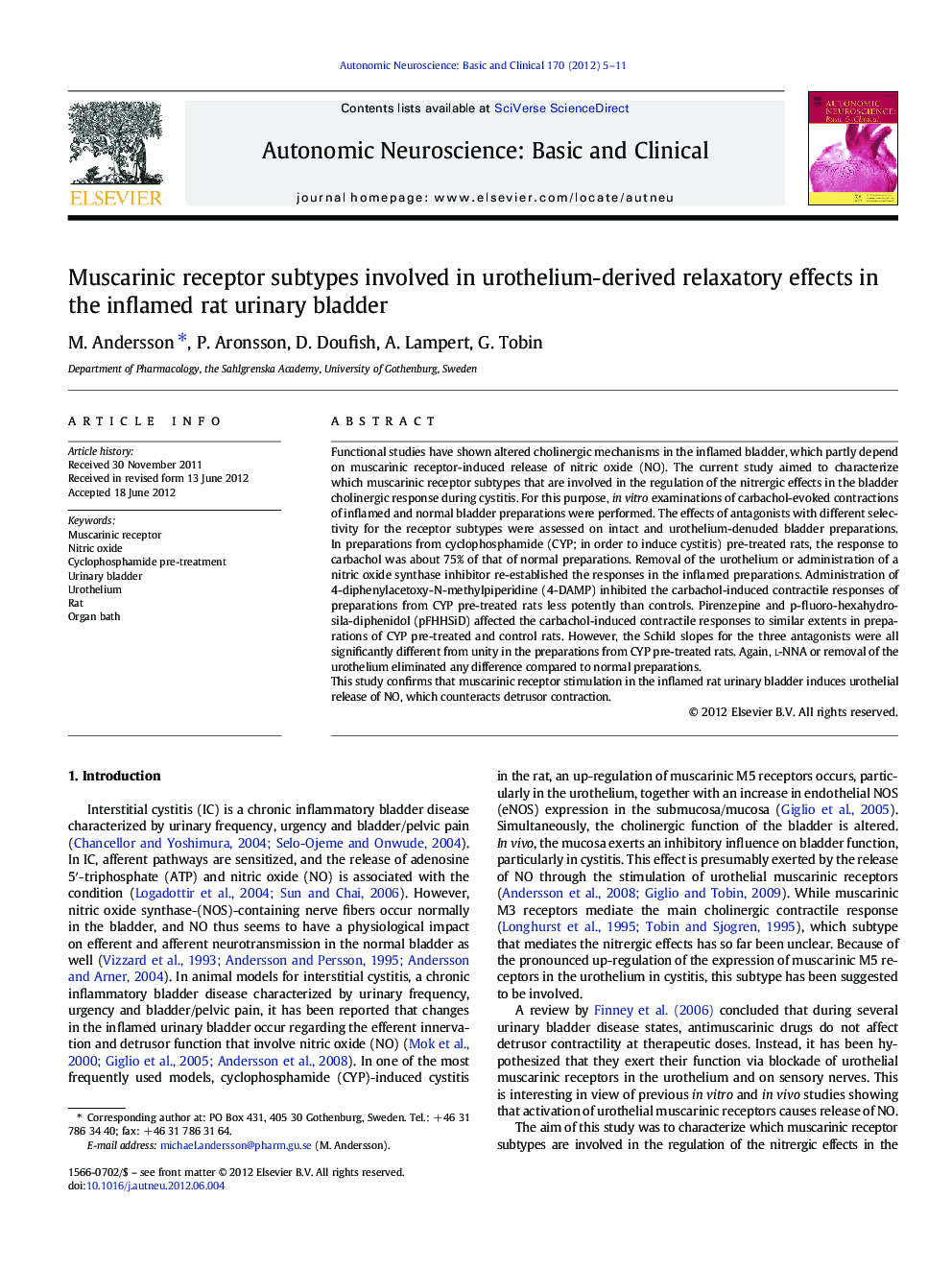| Article ID | Journal | Published Year | Pages | File Type |
|---|---|---|---|---|
| 6004515 | Autonomic Neuroscience | 2012 | 7 Pages |
Functional studies have shown altered cholinergic mechanisms in the inflamed bladder, which partly depend on muscarinic receptor-induced release of nitric oxide (NO). The current study aimed to characterize which muscarinic receptor subtypes that are involved in the regulation of the nitrergic effects in the bladder cholinergic response during cystitis. For this purpose, in vitro examinations of carbachol-evoked contractions of inflamed and normal bladder preparations were performed. The effects of antagonists with different selectivity for the receptor subtypes were assessed on intact and urothelium-denuded bladder preparations. In preparations from cyclophosphamide (CYP; in order to induce cystitis) pre-treated rats, the response to carbachol was about 75% of that of normal preparations. Removal of the urothelium or administration of a nitric oxide synthase inhibitor re-established the responses in the inflamed preparations. Administration of 4-diphenylacetoxy-N-methylpiperidine (4-DAMP) inhibited the carbachol-induced contractile responses of preparations from CYP pre-treated rats less potently than controls. Pirenzepine and p-fluoro-hexahydro-sila-diphenidol (pFHHSiD) affected the carbachol-induced contractile responses to similar extents in preparations of CYP pre-treated and control rats. However, the Schild slopes for the three antagonists were all significantly different from unity in the preparations from CYP pre-treated rats. Again, l-NNA or removal of the urothelium eliminated any difference compared to normal preparations.This study confirms that muscarinic receptor stimulation in the inflamed rat urinary bladder induces urothelial release of NO, which counteracts detrusor contraction.
